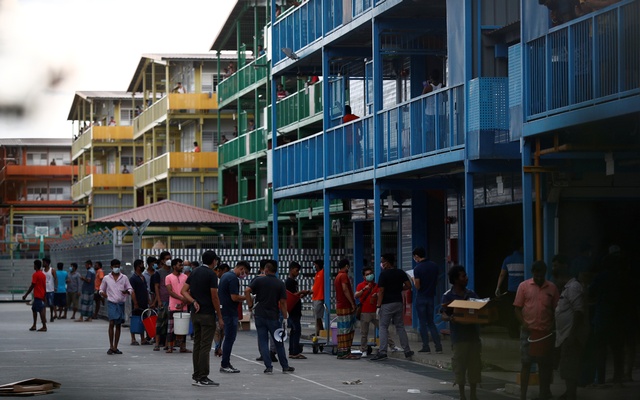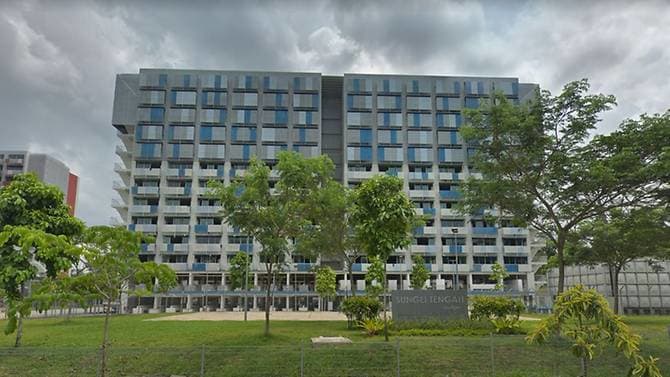
Enamul Hafiz Latifee reports,
Around 102 Bangladeshi expats working in Singapore are among the 248 new COVID-19 cases reported by the city-state in the last two days.
According to lists published by Singapore’s Ministry of Health on Tuesday and Wednesday Most of the newly confirmed Bangladeshi COVID-19 patients in the Southeast Asian nation are linked to clusters detected at worker hostels.
The hostels where the Bangladeshi patients have been found include Sungei Tengah Lodge, Cochrane Lodge I, Westlite Toh Guan, Tampines Dormitory, S11 Dormitory, Toh Guan Dormitory. Moreover, Sungei Tengah Lodge, Toh Guan Dormitory, had been already declared an isolation area under the Infectious Diseases Act. Expat workers from other countries, including India, have also been infected.

The new cases took the total number of COVID-19- cases in Singapore to 1,623 on 08 April 2020, according to the Ministry of Health, Singapore.
Singapore on Sunday, 05 April 2020 said it had quarantined nearly 20,000 workers in two dormitories, made up of mainly Bangladeshi and other South Asian manual workers, after they were linked to at least 90 infections.
Cut off from the outside world due to the COVID-19 outbreak, the workers in the dormitories had earlier expressed fear their cramped and squalid quarters are fast becoming a hotbed for infection. Rights groups also criticized the move. It may be discriminatory and risks exposing healthy individuals to a higher chance of infection, they said.
Responding to reports that more than 20,000 migrant workers in Singapore have been put under quarantine in two dormitories that have been designated “isolation areas”, Rachel Chhoa-Howard, Amnesty International’s Singapore Researcher, said, “The rapid spread of COVID-19 among migrant workers in Singapore was already alarming. The fact that thousands are now under quarantine in extremely close proximity could be a recipe for disaster, unless their basic rights are respected.”
He added “Migrant workers living in crowded quarters, without opportunities to self-isolate and protect themselves, are at particular risk of exposure to the virus. Amnesty International has previously expressed concerns over the lack of adequate sanitation available in housing for migrant workers, which could also put them at greater risk.”
He said further, “Quarantines must always be imposed in a manner consistent with human rights.”
He also argued, “The Singapore government must ensure that human rights remain central to all attempts at prevention and containment of the COVID-19 virus, and that all people have access to adequate space for social distancing, adequate water and sanitation facilities, and access to proper healthcare and hygiene equipment for everyone affected, without discrimination.”
Heya i’m for the first time here. I came across this board and I find It really useful and it helped me out much.
Keep up the good work!
Fastidious response in return of this issue with solid arguments and explaining all concerning that.